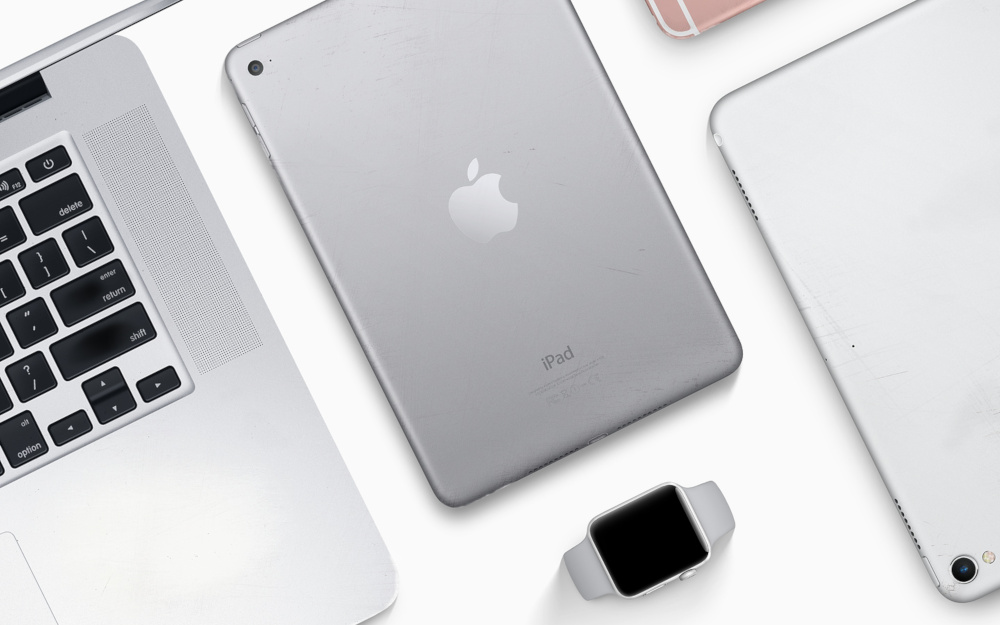Apple Promotes GiveBack Trade-In Program for Old Devices
One consequence of the annual upgrade cycle followed by many tech companies is the generation of staggering amounts of electronic waste, or e-waste, as people discard previous-generation products. The United Nations University said in December 2017 that e-waste is accumulating at a faster rate than ever thanks to rising incomes and falling prices, and by 2021 there will be an estimated 52.2 million metric tons of e-waste. So when Apple says its expanded Apple GiveBack program is the "best environmental outcome for any device," well, that's an understatement.
Apple has offered to refurbish used Macs, iPhones, and other products for years. The problem was that getting any money for your old device required you to mail it to the company, which isn't the fastest process, and even then it didn't actually help offset the cost of a new product. (You could also head to an Apple Store, but that option isn't available to everyone.) So the company rebranded the program as Apple GiveBack earlier this year, and now it's prompting visitors to its website to check how much they could earn in credit towards whatever new gizmo they desire.
The product pages on Apple's website tailor their prompts to a specific device--looking at the new MacBook Pro leads the site to ask if you have a computer to trade in, checking out the new iPhone makes it ask if you want to trade in a smartphone, etc. You aren't limited to trading in Apple products; Apple will also take devices from other manufacturers. All you have to do is answer some questions about the device's model and condition. (You'll also need a serial number for some devices.) Once you're done, Apple provides an estimate for how much it's willing to offer.
It's not hard to imagine why Apple would push the Apple GiveBack program on potential customers. There's probably a point at which even the most ardent consumer will feel a pang of guilt about throwing away old devices just because something new came out. Trading in the product in exchange for money (to help offset the financial cost) while also being reassured that it's the environmentally conscious decision seems like a no-brainer. Apple gets to reduce e-waste, profit by selling refurbished devices, and ease people into not feeling guilty for buying a phone every year.
Apple said on its website that it currently offers up to $175 for an Apple Watch, up to $290 for smartphones, and up to $1,000 for computers via Apple GiveBack. That isn't enough to completely mitigate the cost of upgrading--new devices often cost at least double that--but $200 towards a new phone is a lot more compelling than just letting it collect dust in a junk drawer after you upgrade. We expect these figures to change as the Apple GiveBack program starts to accept newer devices or Apple decides to offer a more steep effective discount on some of its products.
Get Tom's Hardware's best news and in-depth reviews, straight to your inbox.

Nathaniel Mott is a freelance news and features writer for Tom's Hardware US, covering breaking news, security, and the silliest aspects of the tech industry.
-
pjmelect Apple is doing this so that there are fewer second-hand products on the market undermining their inflated new price for their products. They don't resell these traded in devices, they shred them and maybe recover some of the precious metals.Reply -
Co BIY Much better way to discount devices than a straight price reduction. It rewards and builds brand loyalty while allowing Apple to control the size and perhaps more important the location of the secondary market.Reply
They will not be selling the refurbs in the most developed markets. But might use them for warranty satisfaction on models no longer in production.
As the article hits on. The psychology of it is probably much more important than the actually dollar value. It allows you to avoid throwing away a working item. -
Fropwns But, the process takes a while to do. So, those expecting an expedited turn around will likely be disappointed.Reply
